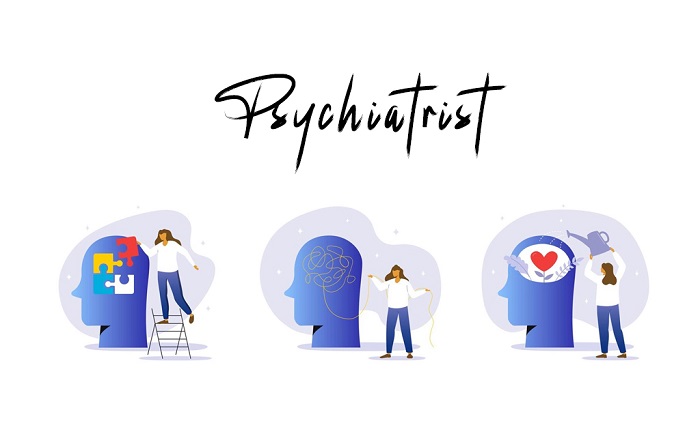Mental health is a complex interplay of biological, psychological, and social factors, and understanding its intricacies requires a holistic approach. “Mindful Evaluation: A Holistic Perspective on Psychiatric Health” delves into the comprehensive methods employed in psychiatric assessments to gain a nuanced understanding of an individual’s mental well-being.
Foundations of Holistic Psychiatry:
Biopsychosocial Model: The biopsychosocial model forms the foundation of holistic psychiatry. It recognizes that mental health is influenced by biological, psychological, and social factors. In mindful psychiatric evaluation, practitioners consider how genetics, brain chemistry, thoughts, emotions, behavior, and social environment interact to shape an individual’s mental health.
Cultural Sensitivity: Holistic evaluation includes cultural competence, acknowledging that diverse cultural backgrounds influence perceptions of mental health. Culturally sensitive assessments ensure a more accurate understanding of an individual’s experiences, reducing the risk of misdiagnosis and enhancing the effectiveness of interventions.
Components of Mindful Evaluation:
Comprehensive History Taking: Thorough psychiatric assessments begin with a detailed history, exploring the individual’s developmental milestones, family history, and life experiences. This holistic approach helps identify potential triggers, stressors, and protective factors that contribute to the individual’s current mental state.
Person-Centered Interviews: Mindful evaluation emphasizes person-centered interviews, allowing individuals to express their unique perspectives. This approach fosters a collaborative relationship between the clinician and the individual, promoting trust and openness in the assessment process.
Biological Dimensions:
Neurobiological Assessment: Evaluating the neurobiological aspects of mental health involves understanding brain structure and function. Neuroimaging and genetic testing can provide valuable insights into conditions such as mood disorders, anxiety disorders, and schizophrenia, guiding personalized treatment strategies.
Psychopharmacological Considerations: In cases where medication is indicated, mindful evaluation considers the potential benefits and risks of psychopharmacological interventions. Balancing symptom relief with minimizing side effects is crucial for optimizing an individual’s overall well-being.
Psychological Dimensions:
Cognitive and Emotional Assessment: Cognitive and emotional assessments explore thought patterns, belief systems, and emotional responses. Identifying maladaptive cognitions and emotional dysregulation informs therapeutic interventions, such as cognitive-behavioral therapy (CBT) and dialectical behavior therapy (DBT).
Personality Assessment: Understanding an individual’s personality traits aids in tailoring interventions to their unique needs. Personality assessments, such as the Minnesota Multiphasic Personality Inventory (MMPI) or the Myers-Briggs Type Indicator (MBTI), contribute valuable information to the overall evaluation.
Social Dimensions:
Social History and Support Systems: Holistic evaluation considers the impact of social factors on mental health. Exploring an individual’s social history, relationships, and support systems helps identify sources of resilience and potential areas for intervention.
Environmental Stressors: Evaluating environmental stressors, such as work-related challenges, financial difficulties, or housing instability, is essential for understanding the external influences contributing to an individual’s mental health struggles.
Integrative Approaches:
Mind-Body Interventions: Mindful evaluation embraces mind-body interventions, recognizing the interconnectedness of mental and physical health. Practices such as mindfulness meditation, yoga, and biofeedback may complement traditional psychiatric treatments, fostering holistic well-being.
Collaborative Care Models: Integrative care models involve collaboration between psychiatric professionals, primary care providers, and other healthcare specialists. This approach ensures that physical health, mental health, and social determinants are addressed collectively, promoting comprehensive and coordinated care.
Conclusion:
“Mindful Evaluation: A Holistic Perspective on Psychiatric Health” emphasizes the interconnectedness of biological, psychological, and social factors in understanding and addressing mental health. This approach goes beyond symptom management, striving to enhance the overall well-being of individuals by tailoring interventions to their unique needs and circumstances. As the field of psychiatry continues to evolve, a mindful and holistic perspective remains pivotal in fostering a deeper understanding of mental health and guiding effective therapeutic strategies.


